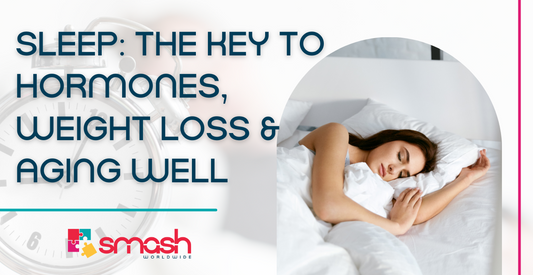Cravings and emotional eating
Emotional eating is a topic that has gained a lot of attention in recent years. Many people wonder if it is a real thing or simply an excuse for overeating. In this blog, I will explore the concept of emotional eating, why it can happen and give you some tips on how to overcome it.
What is emotional eating?
Emotional eating refers to the tendency of individuals to eat food as a response to their emotions, rather than in response to physical hunger. It is often characterized by a craving for specific types of food, such as comfort foods or sweets. People tend to turn to emotional eating as a way to cope with stress, sadness, boredom, or other negative emotions.

Is Emotional Eating a Real Thing?
Yes, emotional eating is indeed a real thing. Numerous studies have shown a strong link between emotions and eating behaviour. When people experience negative emotions, such as sadness or stress, they are more likely to engage in emotional eating. This behaviour can provide temporary relief or distraction from their emotional distress.
Research has also shown that emotional eating is associated with certain physiological changes in the body. When individuals consume high-calorie comfort foods, the brain releases feel-good chemicals, such as dopamine, and lowers stress hormones, such as cortisol, which can temporarily improve your mood. This reinforces the association between emotions and feeling better, and eating what is potentially unhealthy foods, which then leads to a cycle of emotional eating long term.
However, can all over eating/binge eating be classified as emotional eating?
I recently read an article in a Sunday magazine, written by a lady that was talking about being an emotional eater. However, when I read what she ate in a day, I began to question was she really emotional eating.
Here is a picture of what was in the the article

You see when I read this, a couple of things jumped out at me, and it made me question whether or not it was actually emotional eating or was her body crying out for nutrition and some balance.
This lady's body is crying out for nutrition!!
Her food intake explained
The carbs for breakfast will spike her blood sugars first thing in the morning - this means that her insulin levels have went up, her body tries to lower the blood sugar levels the come down quite quickly and then hunger will ensue soon after because the body panics as it feels as though it will not have enough energy to cope with its demands. Starting your morning off like this, is one of the worst ways to do it as it will lead a a day of cravings and energy slumps
Coffee and shortbread is a mega stress on the body. Coffee increases the body's cortisol levels - stress hormone - and the sugar from the shortbread biscuits start the insulin roller-coaster again. Every time that roller coaster hits the bottom, it triggers hunger again, and fat storage.
Lunch again is very carb focused and there is very little mention of high quality protein and no mention of any veggies.
Afternoon tea, is again, carb focused, all causing blood sugar spikes which then results in an afternoon nap after which is coffee - coffee at this time of the day really disrupts the body's natural circadian rhythm (when you should be awake and asleep), which will result in hormone and sleep disturbances, which then in turn will mean that her next day will start of on the wrong foot right from the word go.
Evening dinner again doesn't have any vegetables mentioned.
11pm more carb focused snacks and eating this late will mean that her body doesn't get to switch off properly as it is trying to digest food throughout the night. When this happens there will be a blood sugar low in the middle of the night, a cortisol spike and the body will waken. This means that she will waken tired the next morning and the whole cycle starts again.
Other things that caused me concern were
- no healthy sources of fat
- very little protein
- was she eating enough for her current weight
- lack of veggies and fruit
You see, when the body is not getting the nutrition it needs it will make you want to eat. You may feel that you are "emotionally eating" but actually is it your body trying to tell you that it needs nutrients
The impact of Emotional Eating
To me, this woman wasn't emotional eating. To me she was trying to fuel a very malnourished body and dealing with a lifestyle that is not serving her well. If she focused on nutrition rather than just eating "food" and really nourished her body, the cravings to eat unhealthy carb based foods would disappear. I would also suggest better stress management techniques to help with stressful situations.
While emotional eating may provide temporary comfort for this lady, it can have negative consequences in the long run. People who regularly engage in emotional eating are more likely to struggle with weight management and have an increased risk of developing obesity. Additionally, emotional eating can lead to feelings of guilt, shame, and a negative body image. All of which this lady spoke about in her article.
When I see articles like this, I really want to say to the person - there is another way, it is The SMASH Way, and it can help you.
Developing a healthy relationship with food and finding alternative coping mechanisms for emotions can help individuals break free from the cycle of emotional eating. When you are eating for nourishment, the body responds accordingly.
What happens when you fuel your body with the proper nutrients?
- When you nourish your body effectively, these cravings and emotional eating urges, disappear.
- When you nourish your body effectively, the correct hormones are released so you can deal with your day more effectively.
- When you nourish your body effectively, the feel full signals are turned on and binge eating becomes a thing of the past.
Women are always amazed when they no longer crave rubbish when they start to eat The SMASH Way. This is because their body's are getting what it needs. The SMASH Way of eating is all about support the whole body and eating foods won't spike blood sugar, trigger hormonal issues or cause any damage to their body.
If you are struggling with emotional eating, there are things that you can do to help break the cycle. Here are some tips to help.

Six tips for overcoming emotional eating:
-
Identify Your Triggers and Emotions: Pay attention to your emotions and the situations that trigger your emotional eating. Keep a journal to track your eating patterns and emotions associated with them. Identifying these triggers will help you develop strategies to address them directly.
-
Seek Alternative Coping Mechanisms: Find healthier ways to manage your emotions that don't involve food. Engage in activities like exercise, meditation, journalling, or talking to a friend or therapist. Replace the urge to eat with activities that uplift your mood and provide a sense of relief.
-
Practice Mindful Eating: Develop a mindful eating practice to become more aware of your hunger and fullness cues. Slow down while eating, savour your food, and engage your senses. Focus on the taste, texture, and aroma of each bite. This will help you reconnect with your body's natural signals and prevent mindless overeating.
-
Build a Support System: Surround yourself with a strong support network. Openly communicate your challenges and goals with trusted friends, family, or a support group. Sharing your journey with others who understand your struggles and offer encouragement can make a significant difference in overcoming emotional eating habits. The SMASH Community is a great space for support when you are struggling.
-
Engage in Self-Care: Prioritize self-care activities to enhance your overall well-being. Engage in activities that reduce stress and promote relaxation, such as taking a bath, reading a book, practicing yoga, or listening to calming music. Making self-care a priority will help you address the root causes of emotional eating and promote a healthier mindset.
-
Make sure You are Eating Enough: By nourishing your body with the correct nutrients you supporting all of your body’s natural processes which will then ensure that you are able to deal with situations better in the long run.

So my advice, this week is, the next time you feel like you are emotionally eating, take a minute and ask yourself - "What can I do differently rather than reach for unhealthy foods" You might be surprised at the answer you get and how you can then respond accordingly. You may not be able to break your emotional habit straight away, but with practice and support, it can happen.
Remember, overcoming emotional eating is a process that requires patience and self-compassion. Be kind to yourself and celebrate every small step towards healthier habits.
To Conclude
Emotional eating can be a daunting challenge, but with the right knowledge and tools, you can break-free from its grip. By understanding the root causes, implementing practical strategies, and adopting mindful eating practices, you can regain control and foster a healthier relationship with food. Don't let emotional eating continue to dictate your life - empower yourself with the knowledge and strategies to overcome it.
If you need extra support, living life The SMASH Way can support you on your journey towards a healthier relationship with food and your emotions. Reach out if you need help.
Let's SMASH it!





1 comment
It’s great to hear that you agree Sharon. There were reports in the news today about women getting access to this drug even though they didn’t meet the criteria that you need to meet in order to use the drug “safely”!! Long term health is through food and healthy habits. There are no short cuts